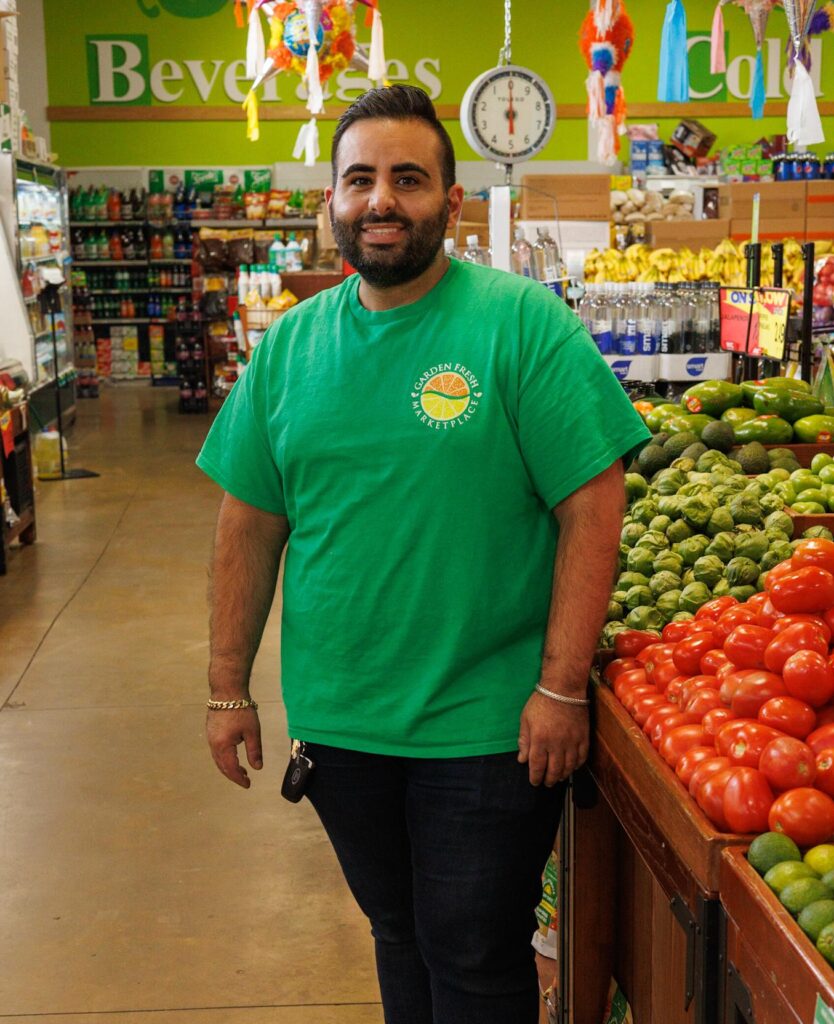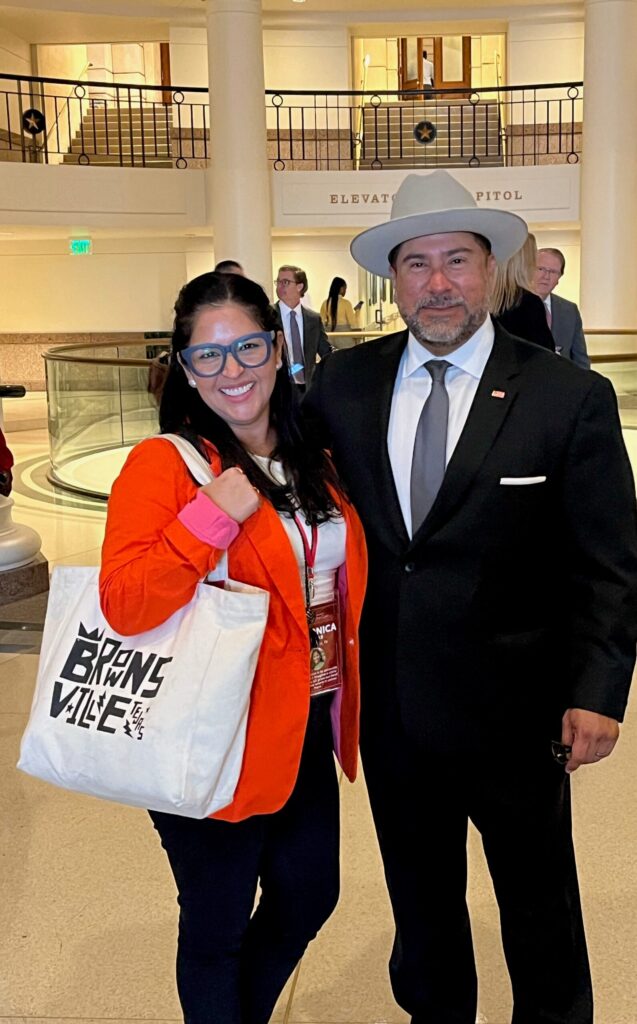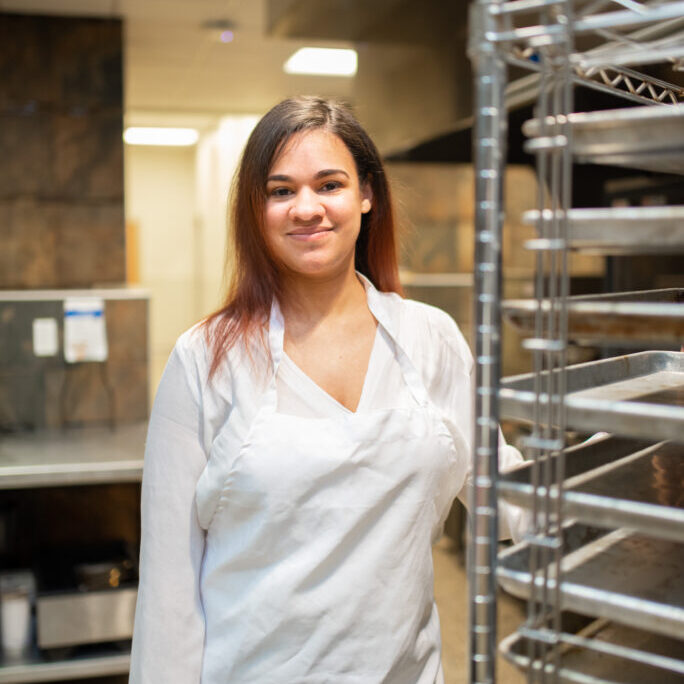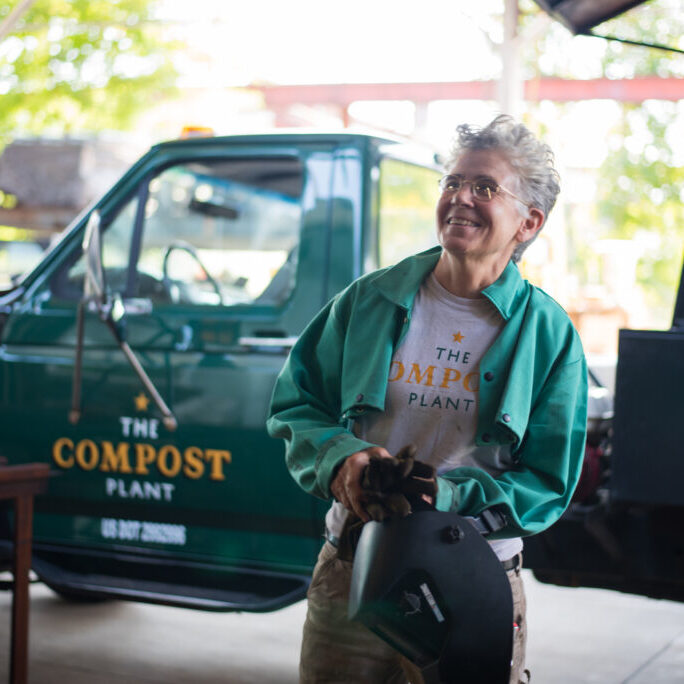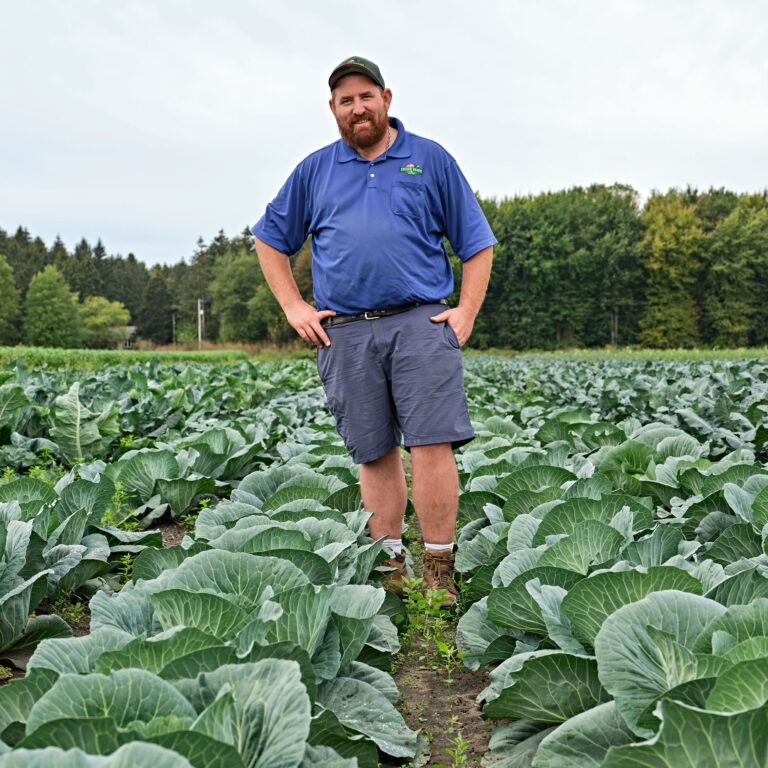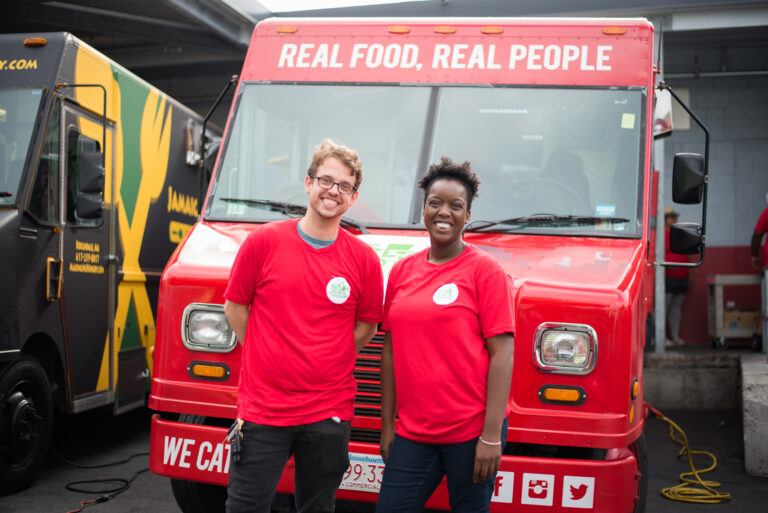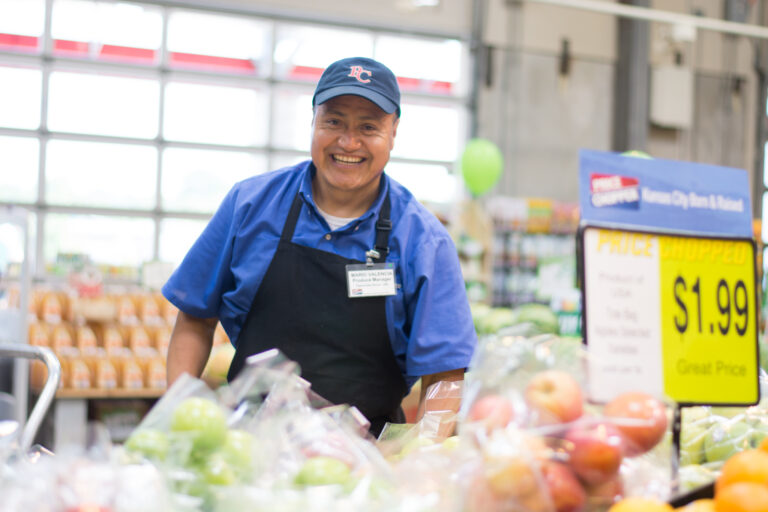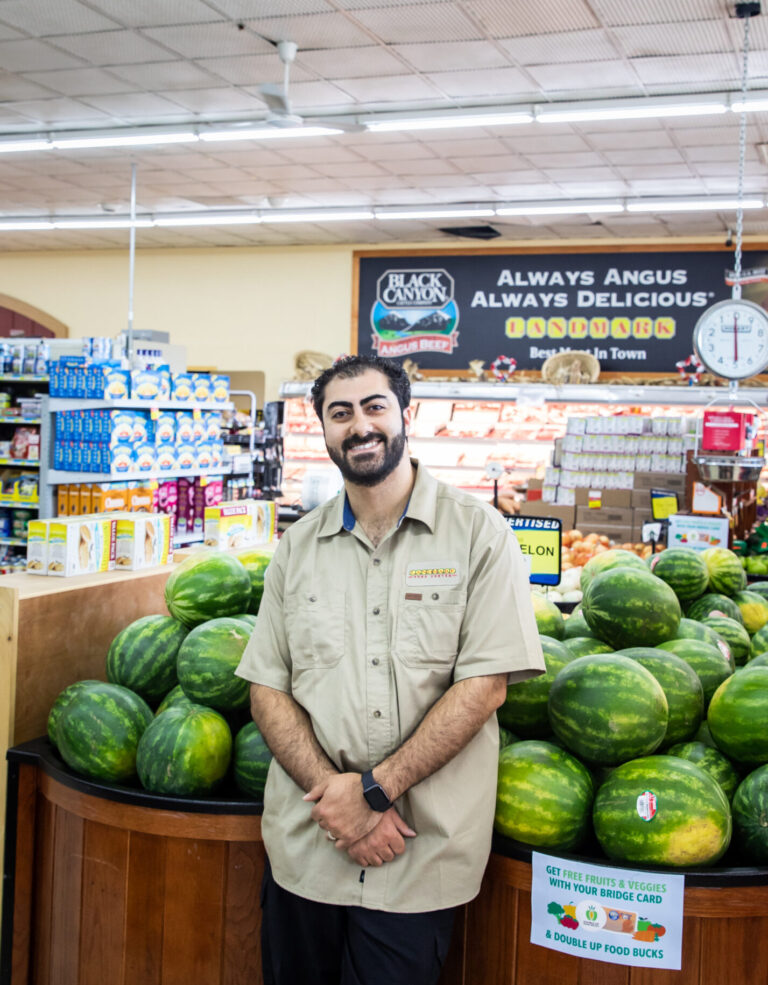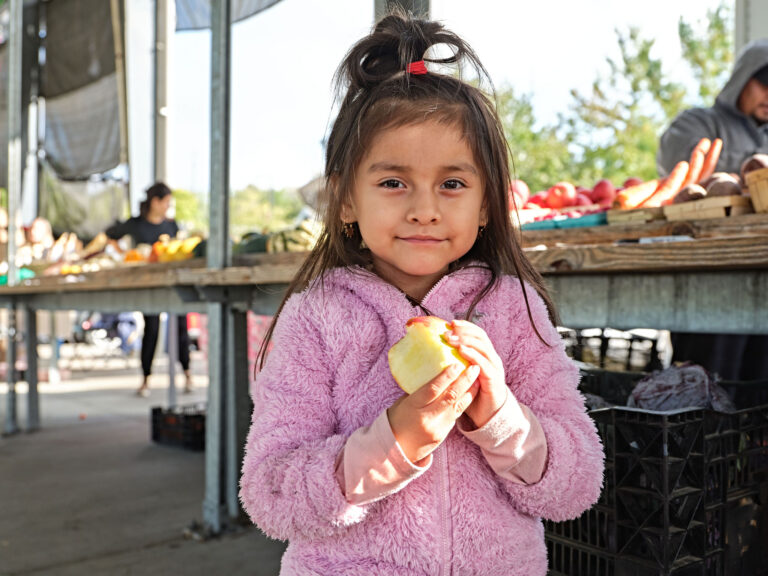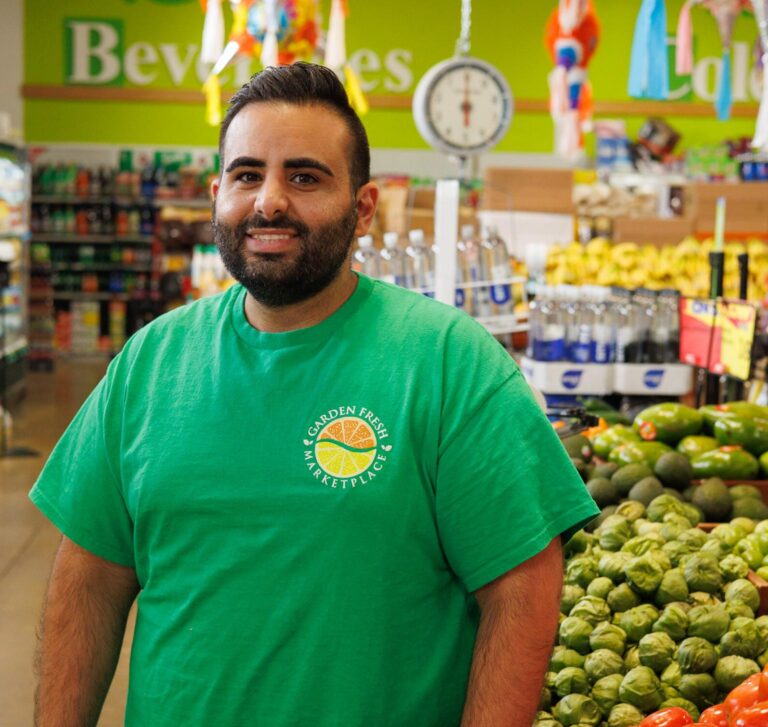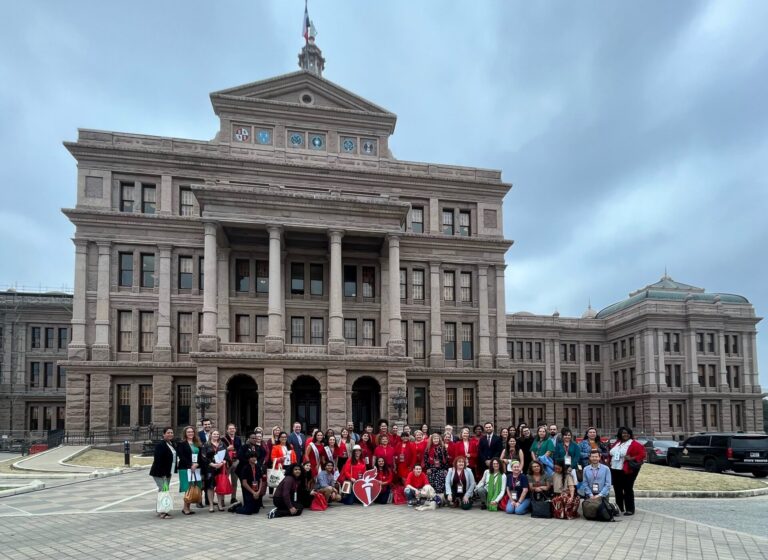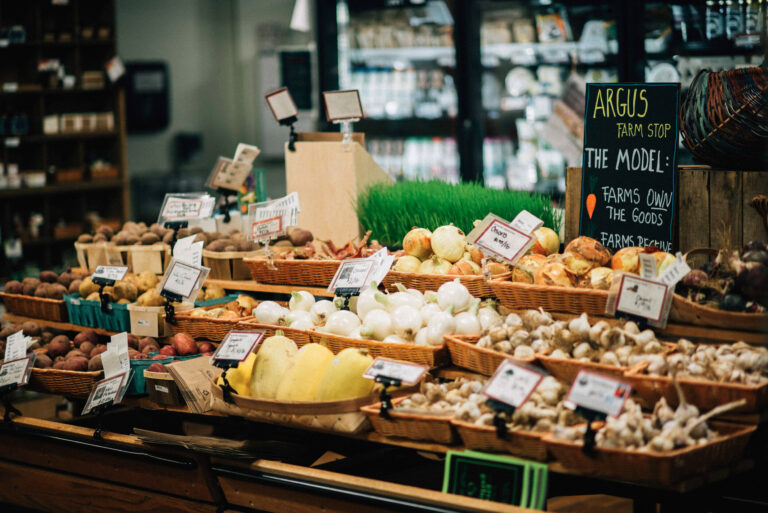A letter from our CEO
It's been my lifelong quest to confront our biggest challenges by focusing first on what unites us. Starting with food does precisely that: It brings us to the table to find common ground, build community, and take collective action.
In 2023, upon the retirement of our founder and longtime CEO, Oran Hesterman, I took the helm at Fair Food Network. Every day I have the joy of partnering with an extraordinary team of dedicated and enthusiastic believers in food-driven solutions. We continue to take what we are learning in our work in our home state of Michigan and, together with our partners, bring solutions to scale for national impact.
Since our founding in 2009, we’ve grown from offering Double Up Food Bucks in five Detroit farmers markets to the technical assistance provider for all nutrition incentive and produce prescription projects in the US. As we’re supporting the growth of nutrition incentives and expanding opportunities for Michigan retailers and farmers, our approach and dedication to the communities where we work have taken root and spread from California to Maine. Alongside nutrition incentives, our success in developing place-based impact investing collectives has broadened healthy food access while strengthening local economies and demonstrating what’s possible. Our role as the administrative lead for the Michigan Good Food Fund gives us the opportunity to model, share, and exchange knowledge to improve how food is used as a tool for equity. But even as our work and impact are national in scope, the innovations we're testing and the impact we’re evaluating are firmly planted in a community-first mindset.
As hopeful as I am about what lies ahead, I also recognize that these are still very challenging times. We face long-standing inequities in our society and in our food system, as well as mounting pressure on our environment due to climate change. To meet the moment, we need to look inward, identify our strengths, and address our shortcomings. This means engaging our communities by listening first, developing systems for measuring our impact, and holding ourselves accountable for our commitments to equity and justice.
Together, we are transforming how resources flow through the food economy. And we are poised to accomplish much, much more.
At Fair Food Network, we see food as a starting point for solutions. Food unites us as we work together to build a fair future. I look forward to the partnerships, innovation, and progress that will light our way forward.
A LOOK BACK AT 2022
Our Impact by the Numbers
Total hours of technical assistance provided to food businesses and organizations in 2022.
Total dollars invested into communities by Fair Food Network.
We know that farmers and local food businesses are engines for positive change, so we support and invest in their success. Our work focuses on shifting how essential resources flow through the food economy, building equity in communities across the country.
EXPLORE OUR HIGHLIGHTS
EXPLORE OUR HIGHLIGHTS
Double Up America
Double Up Food Bucks started in Detroit in 2009 and has since been adopted by partners around the country, improving healthy food access from coast to coast. Nutrition Incentive programs like Double Up continue to bring affordable fruits and vegetables within reach of individuals and families with low income.
13 YEARS OF IMPACT
Pounds of food purchased with
SNAP & Double Up
USDA Dollars leveraged
2022 IMPACT: BY THE NUMBERS
1,780
Active Double Up Sites
1,264
Farm-Direct Sites
516
Brick & Mortar Sites
455
New Double Up Sites
438
New Farm Direct-Sites
18
New Brick & Mortar Sites
776,113
People Impacted
763,473
Families Impacted
12,640
Farmers Impacted
$48M
Total $ for
SNAP & Double Up
$27M
Total Double Up earned
through SNAP purchases
$20.9M
Total Incentive Dollars Spent
$14.7M
Total $ for Farm-Direct
SNAP & Double Up
$8.6M
Earned
$6.1M
Spent
$33.3M
Total $ for Brick & Mortar
SNAP & Double Up
$18.5M
Earned
$14.7M
Spent
Double Up Michigan
13 YEARS OF IMPACT
Combined SNAP & Double Up sales
Pounds of healthy food
purchased with SNAP & Double Up
Double Up sites in Michigan
2022 IMPACT NUMBERS
$12.2M
Combined SNAP & Double Up sales
253
Double Up Sites, including
113 grocery stores and 140 farmers markets
113,545
SNAP households reached
98%
of Michigan's population lives in a county with a Double Up site
$6.39M
Amount of produce purchased by independent grocers
1,100+
Michigan farmers benefited
$22.71M
USDA awards Fair Food Network has received to expand Double Up in Michigan and support its replication across the country since 2015
FEATURED INVESTMENTS
Fair Food Fund Financial Overview
Financing Committed
(through Dec. 31, 2022)
Financing Outstanding
Investment Income
Total Investments (Since Inception)
Default Rate
As of Dec. 31, 2022, the annualized default rate since the Fund’s inception (2012) is .45% or 4.6% cumulatively.
Type of Business
Type of Structure
Fair Food Fund Financials
Balance Sheet
Assets
Cash
$5,073,700
Accounts Receivable
$98,185
PRI Loans Committed
$0
FFF Investments Outstanding
$3,326,999
Total Assets
$8,498,884
Liabilities and Net Assets Expenses
Loans Payable
$4,015,574
Accrued Interest
$65,542
Unrestricted Net Assets
$1,057,090
Temporarily Restricted Net Assets
$3,360,678
Total Liabilities and Net Assets
$8,498,884
Income Statement
Income
Government Grant Income
$0
Non-Government Grant Income
$1,120,000
Investment Income
$119,639
Other Income
$676
Total Income
$1,240,315
Expenses
Program Operating Expenses
$1,028,921
Technical Assistance Expenses
$76,240
Investment Expenses
$86,888
Total Expenses
$1,192,049
Net Income
$48,266
Amway
Ann Arbor Area Community Foundation
Anonymous
CapShift
Charles Stewart Mott Foundation
Chordata
Clif Family Foundation
Community Foundation of Greater Flint
Community Foundation for Southeast Michigan-New Economy Initiative
Dalio Philanthropies
DTE Energy Foundation
Elmina B. Sewall Foundation
Harry A. & Margaret D. Towsley Foundation
J.M. Kaplan Fund
Kresge Foundation
Lawson Valentine Foundation
Max M. & Marjorie S. Fisher Foundation
Michael & Susan Dell Foundation
Michigan Department of Agriculture & Rural Development (MDARD)
Michigan Health Endowment Fund
Mighty Arrow Family Foundation
Natural Investments, LLC
Oppenheim Family Charitable Fund
Ralph C. Wilson, Jr. Foundation
Ruth Mott Foundation
Surdna Foundation
Swift Foundation
The Indigo Revocable Trust
United States Department of Agriculture (USDA)
United Way for Southeastern Michigan
Wege Foundation
W.K. Kellogg Foundation
Woodcock Foundation
You Have Our Trust Fund of New Hampshire Charitable Foundation
INDIVIDUAL DONORS
$5,000 and above
Christopher & Nicole Hamp
Hamp Family Fund
Kenneth & Jeanne Levy-Church
Up to $2,500
Gayla Brockman
Alan Deardorff
Judy & Paul Freedman
David & Gretchen Gruner
Heal The Planet Foundation
James Ella James
Lenny & Barb Kafka
Jaye Lopez & Anne Van Soest
Martin Family Foundation
Gary McRay
National Food Group
Greg & Hanna Ostroff
Tom & Sarah Post
Sterling Speirn
Mike & Susan Stanley
Joe Turgeon
Dan & Bonnie Warmels
Up to $1,000
Peggy Bennett
Jeff Boore
Bobbie (Roberta) Bower
Stephen Cummings
Stephanie Doll
Shari & Dan Fisher
Linda & Richard Greene
Timothy and Janice Griffin
Alfred J. Guillaume, Jr.
Marie Hooper
Iris Horner
Edward & Debbie Linkner
Virginia Montgomery
Teresa Ohmit
Jeffrey Yurkanin
West Front Primary Care
Up to $500
Joe & Julie Damore
Mary Dooley
Cassandra Fletcher-Martin
Amandio Fonseca
Noah Fulmer
Mike & Anne Groleau
Naomi Harrison
Marion Hoyer
Janet & Andy Katz
Charles Kontulis
Amy Lavi
Ann Mesritz
Danielle Nagy
Paulo Neuhaus
Andrew Sereno
Stephanee Strasburg
Karen Uffelman
Diana & Christopher Walsh
Up to $100
American Online Giving Foundation Causes
Diane Bair
Diane Beall
Ford Bowerman
Kellie Boyd
Peter & Elizabeth Bruning
Elizabeth Cohen
Barry & Joanne Couturier
Sandra Cuttler
Curtis Ellis
Cara Eule
Mary J. Eyster
Courtney Ford
Kat Forsythe
Dr. & Mrs. Patrick Friedli
Jamie & Mindy Gallagher
Amy Griffith
Susan Guinn
Arla Hesterman
Reb Shaya Isenberg & Bahira Sugarman
Rosalind Johnson
Jorge Just
Bruce Karmazin
Norma & Joseph Mariage
David McClary
Deborah Mcmillan
Robin McNulty
Sally Miller
Diane Money
Andi Nank
Savannah Ottmar
Kristin Palm
Phillip and Sally Parker
Carol Ann Pruitt
Raw Signal Group
Bonnie Reece
Timothy Richards
Avery Robinson
Thomas Rogers III
Michelle Smay
Bonnie & Steve Spanier
Sarah Spratt
Barbara Stanford
Anim Steel
Lynn Swan
Brenda Turner
Gail Turner
Rachel Van Boven
Dr. & Mrs. David Wilcox
Shanna Williams
Ron Williamson
Jim Wisnia
James Wu
Gracie Xavier
Suzanne Zelnik Geldys
Bob & Marcella Zorn
See More Impact
Stay In Touch
Thank you to the report’s designers, including Loop and Hien Lam;
photography courtesy of Fair Food Network and/or subjects.








